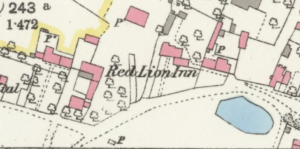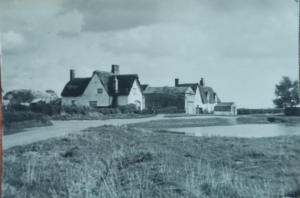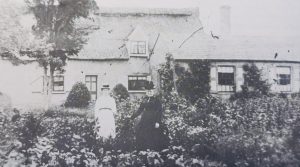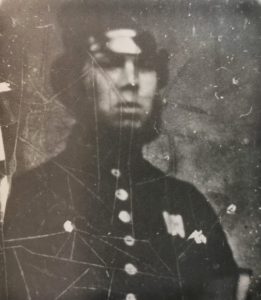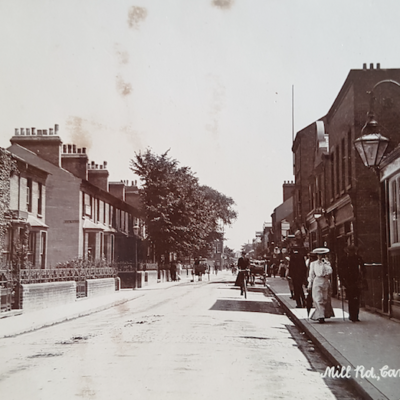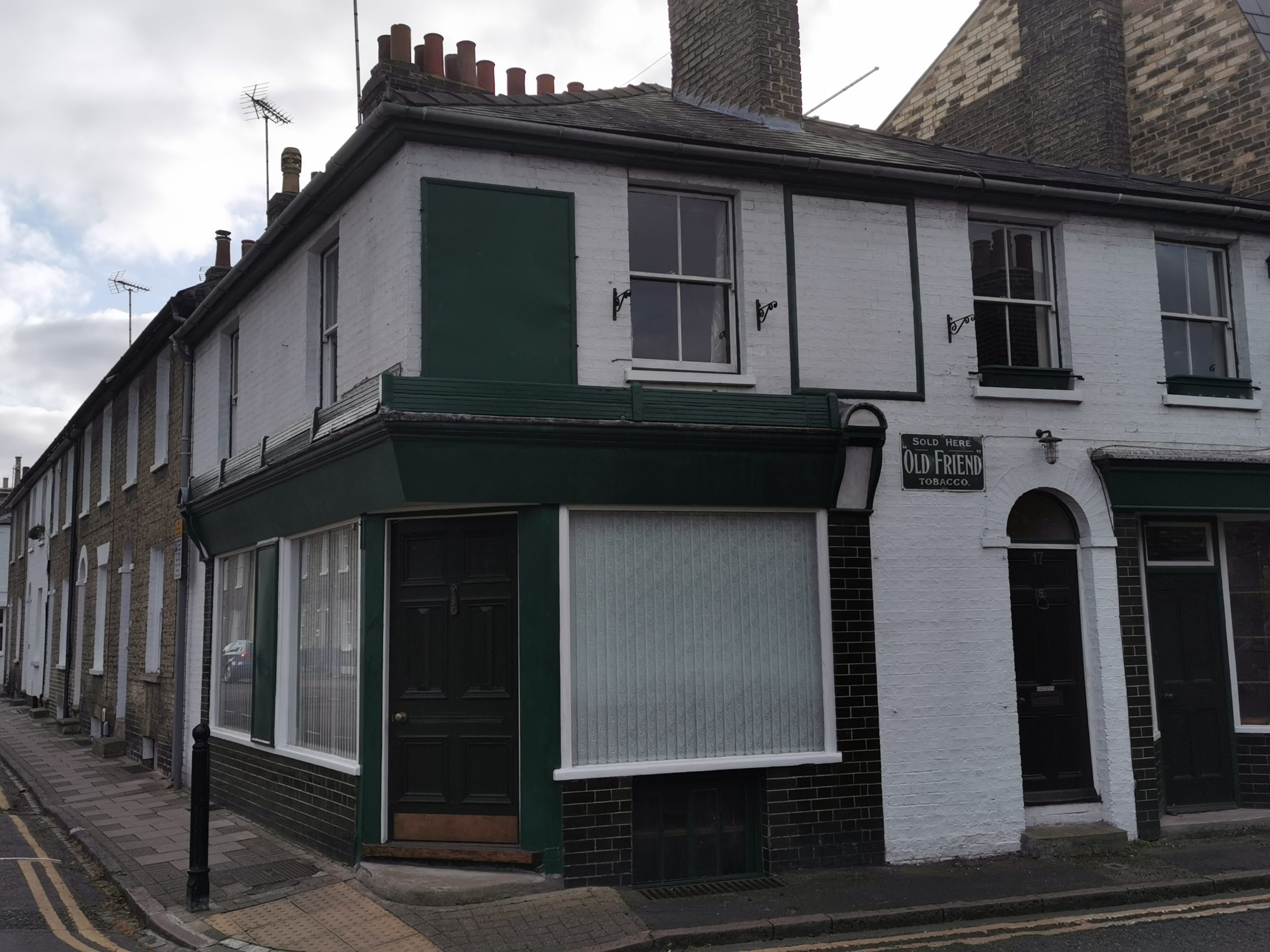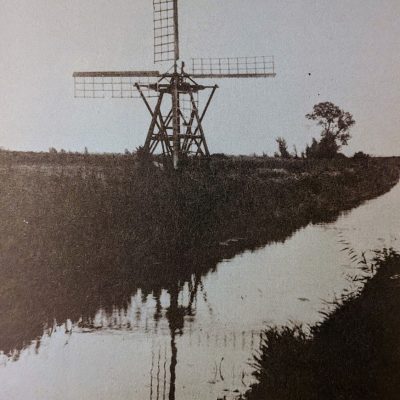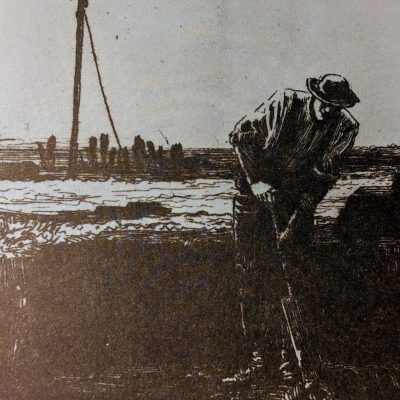Search by topic
- archaeology
- Building of Local Interest
- chapel
- charity
- church
- crime
- dressmaker
- fire
- Great Eastern Railway
- Listed building
- Mapping Relief
- medieval
- oral history
- poverty
- Public House
- Religious House
- Roman
- scholar
- school
- Then and Now
- tudor
- women
- work
- world war one
- world war two
Search by text
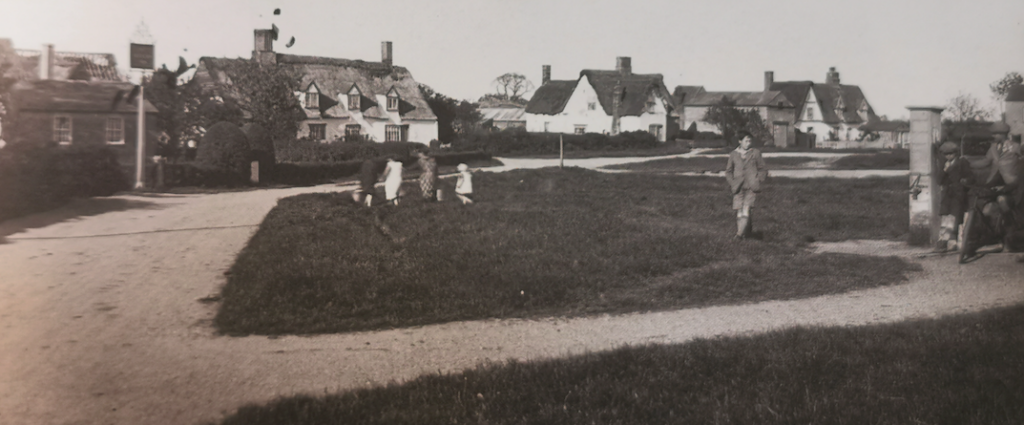 Pond Green, Wicken 1929 (photo L Cobbett) (Cambridgeshire Collection)
Pond Green, Wicken 1929 (photo L Cobbett) (Cambridgeshire Collection)Red Lion Inn and village pump, Wicken
History of Pond Green
The pump is marked at the bottom of the map. M Knowles noted in 1902 that the village had a good supply of water.
It was the location of the last known sighting of P.C. Richard Peak in the early hours of Saturday 18th August 1855.
A detailed account of this crime can be found in ‘Cambridgeshire Murders’ by Alison Peak.
Cambridge Chronicle and Journal 1st September 1855
THE LATE MYSTERIOUS DISAPPEARANCE OF THE WICKEN POLICE CONSTABLE. About a fortnight ago the sudden disappearance of a member of the Cambridgeshire rural police-force created created quite a sensation in the neighbourhood of Burwell, Wicken, Soham and Fordham and rumours soon spread that he must have met with foul play, rumours the more easily credited from the circumstances under which the disappearance took place, the character of the man himself, and the strenuous exertions of the other members the force, headed by Captain Davies, the Chief Constable, and his deputy, Mr. Low, and backed, (indeed in many cases personally aided) by the most influential inhabitants to discover signs of the fate of the missing constable or the reason of his sudden withdrawal from his duty.
It is to be regretted that up to the present time all these exertions have been fruitless; unless indeed an inference may be drawn from the fact of the vigilant search instituted having failed in eliciting anything leading to the belief that the constable had been otherwise than fairly treated, that he had suddenly taken himself off under mysterious and certainly discreditable circumstances. It is the duty of a journalist in such a case to present all the attainable evidence to his readers, and leave them to form their own opinions; and we shall content ourselves with doing merely remarking at the outset that our correspondent’s information has been gleaned from the most reliable resources, and that he has kindly been allowed access the reports relating to the matter matter now in the possession of the Chief Constable.
It would appear that the missing constable Peak (26) was a member of the Wicken detachment, and performed his duty according to the usual routine on the 17th of August.On that day there was a sale by auction at the Lion public house, Wicken, that which did not terminate until about nine pm. At the conclusion of the sale, from forty to fifty persons were left assembled in the house, and Peak continued going in and out at intervals until about 2 a.m. on the 18th. At this hour Peak expressed his intention of leaving for good but the landlord (Cranwell) pressed him to continue about the house as he feared a disturbance among the parties congregated inside; and at the request of the latter he entered the house several times afterwards, and finally, ejected two parties who were noisy. The house was cleared at 3.15 a.m. and the company being dispersed, Peak said to the landlord. “Good morning; I’ve got an hour and a half’s walk, and then I will go to bed.” This is the last that can be heard of him. Peak had a pint of beer and a shilling’s worth of brandy and water in the house altogether; but the time in which he took it extended over some hours and he was perfectly sober when he left. Three men were fighting in the village at 4.0 a.m. of the 18th, but Peak was not there.
When Peak left Wicken, he was dressed in a brown straw hat, a brown great coat, a check coat, dark cloth vest, and a pair of coarse uniform trousers, with black neck tie and Wellington boots. The walk to which he alluded to to Cranwell was to the lower part of North street, Burwell, where he ought, according to disciplimentary regulations, to have attended a conference of the neighbouring patrol, meeting at this particular spot at 4.0 am but he did not appear. The apparent singularity of his dress is accounted for by the fact that the members of the force have license to wear private clothes at night, on common occasions, in order to save their day uniforms; he had a staff and handcuffs in his pockets. His absence from the conference alluded does not appear to have created any great surprise, us the men are allowed to absent themselves in case of any sudden contingency arising on their beat, they properly accounting for such absence in a report to their head-quarters.
Saturday the 18th and Sunday the 19th passing over without any tidings of the missing man, much alarm was felt and on Monday a rigorous search was instituted, which has been continued ever since, but without throwing any light upon his face. The search has been headed by Captain Davies and Mr. Low, assisted by six or eight members of the force daily, to say nothing of the efficient aid afforded by the inhabitants, headed by the Incumbent, and Mr Johnson of Wicken and Mr. Miller, surgeon, of Soham, all of whom have taken deep interest in the affair. The Fens, and towns and villages for miles round, have been searched without success, that is, up to Thursday evening last, not drop of water that would float a cork, within three miles, being left uninspected or undragged. All the outports and police-stations in the kingdom have been communicated with, but with the same result. A female at Brighton it is said, to whom he formerly paid attention, has been written to, but she has neither seen nor heard anything of him.
, . about £’» years ot age, and entered the police Ijrc’r oil the loll! December, 18.VJ: bore good cha-icvr steady ami respectable man married a perioufmm Sdiam, has letl her at Burwell, where he tv-lit <t With one . h>id. left all the clothes and money ti.ai was known to in posst of, and this is the fact tbslltad# so many to the conviction that has met foulpim. stood about it. in. His mother arrived at \V t ,’*en on Saturday last from Caxtou. Theeicitcuieut in the neighbourhood intense.
Richard Peak was from Caxton and had joined the police in 1851 aged about 20. He was stationed at Burwell and given responsibility for the village of Wicken.
On 17th August 1855 Peak’s job was to police a crop auction at the Lion public house in Wicken. During the evening Peak was seen getting drinks at the bar out of uniform. He also broke up a small disturbance. The landlord, William Cranwell saw Peake for the last time at 3.15 a.m.
Peake failed to report for work in Burwell at 4 a.m. that morning. Other police was called in to search routes between Wicken and Burwell but he was never found.
In 1880 a skeleton was pulled from a pond in Wicken showing damage to the skull. Later a skeleton was recovered during renovation work at the Anchor in Burwell. Neither of these remains has been shown to be that of PC Peak.
Contribute
Do you have any information about the people or places in this article? If so, then please let us know using the Contact page or by emailing capturingcambridge@
Licence
This work is licensed under CC BY-NC-SA 4.0





